The reflections of an ‘old to’ Early Years Educator guiding a ‘new to’ Early Years Educator in developing the occupation of cooking.

‘Cooking is one of Froebel’s occupations which relates to real life, involves the child in real and practical work, encourages motivation, develops independence and promotes cross-curricular learning’.
(McCormick 2012: 145)
Being offered the opportunity to participate in a research project regarding the benefits of Froebel’s occupations, particularly in the 21st century, Izzy was keen to embrace cooking more fully within the 2 -3-year-olds room in which she was based. She recognised the benefit to children in both developing skills that support them into adulthood and the holistic assets of cooking.
Leading up to this research project, Izzy had worked alongside other educators in providing cooking experiences to children, such as making playdough and chopping vegetables to create soup. At snack time Izzy offered the opportunity to spread butter on toast: ‘We watched and talked about putting the bread in (the toaster) and watched it pop up which made lots of the children laugh.’
Izzy had reflected upon the cooking and experiences she had already undertaken but was keen to develop her knowledge and receive guidance on how best to move forwards. I was invited to partner her in her journey. Respectful collaboration was a key focus in my liaisons with Izzy, ensuring that I ‘… explained, demonstrated, explored ideas, encouraged, questioned… and set challenges’ (Ofsted 2015) as she explored cooking with young children. After all, as educators, just as the children we are privileged to guide, we are on a continuum of learning; ‘Learning begins at birth and continues throughout life.’ (Froebel Trust, Froebelian Principles).
As a teacher of ‘many years’, I have observed practitioners stating that they are planning to do some ‘cooking’ with children. However, that statement is often said with trepidation and dread as if they are about to encounter climbing Everest! It was important to understand what practitioners considered to be the barriers regarding cooking in order that I could support Izzy, more fully, on her journey. I knew that, unconsciously, other’s views may affect Izzy’s perception of cooking. The constraints of time, space, child to adult ratios were frequently mentioned. The concerns regarding young children handling kitchen equipment often arose too; knives, graters, peelers were deemed as a hazard to young children.
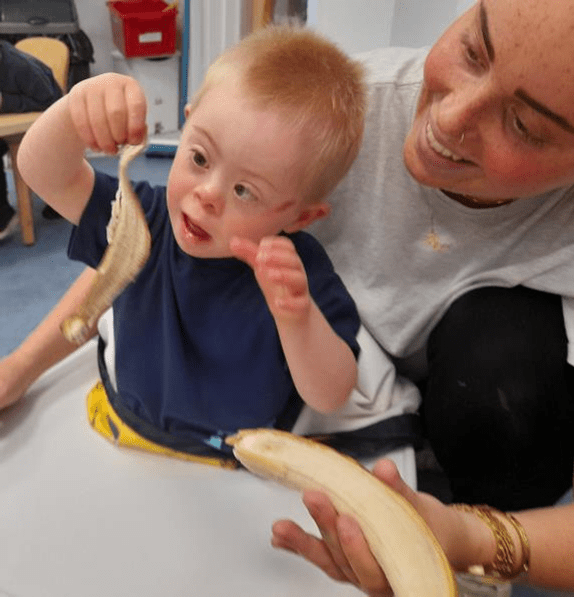
As we reflected upon her cooking journey so far and with consideration of where the children were regarding their skills and experiences, Izzy and I sequenced cooking opportunities for the new term.
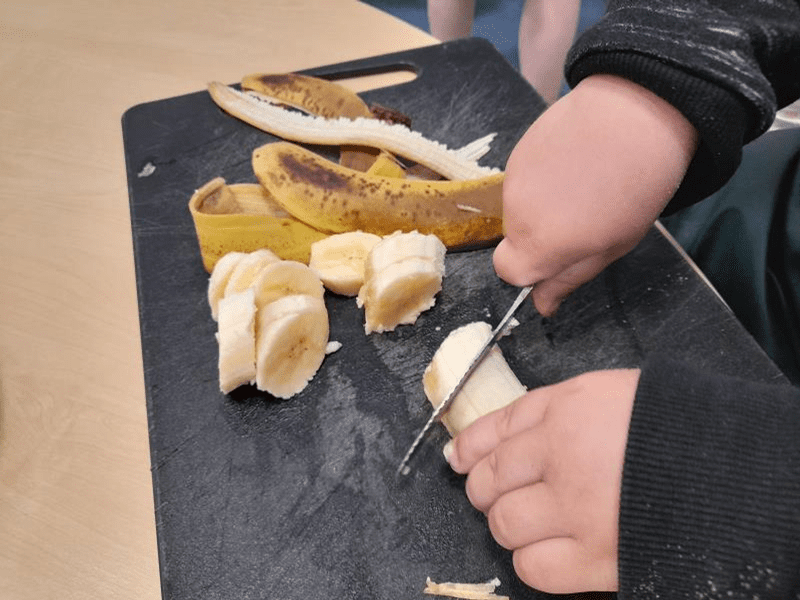
First 2-3 weeks
- At snack time, offer rice cakes and support spreading cream cheese.
- Develop a new skill:
- Use of knives for chopping.
- Chopping fruit/vegetables – cucumber, a whole pepper, tomatoes. Give the freedom to choose which vegetable/s they chop and use.
- Extend learning by allowing the children to consolidate the new skill but keeping the experience ‘fresh’ and motivating. For example, children could spread a base and chop ingredients to create faces or displays on their rice cakes. Use photos of their faces/have mirrors available.
- Within the learning environment, offer opportunities to rehearse the new skill. For example, sand + water + fairy liquid to create ‘cement’. Spread the ‘cement’ using the sand toys on blocks/crates/tires to create structures.
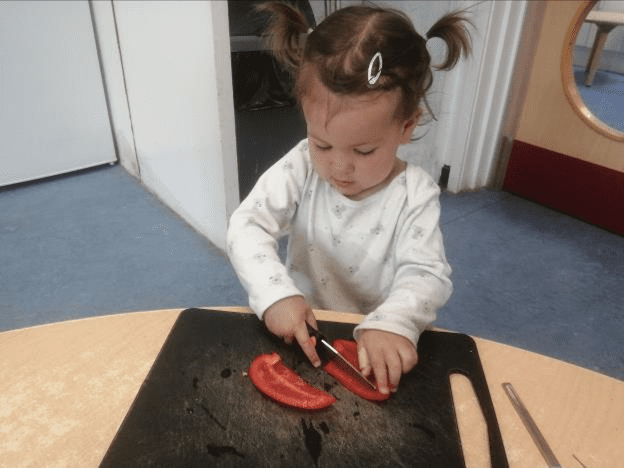
Next 2-3 weeks
- At snack time, offer crackers and humus.
- Develop a new skill:
- Use of peelers, learning to peel away from themselves (safety).
- Peel carrots and chop them to add to snack with crackers and humus.
- Within the learning environment, offer opportunities to rehearse the new skill. For example, peeling sticks in the garden.
We also discussed the importance of ensuring that the children developed a recognition of the whole process of cooking. With this in mind, the children would be:
- Encouraged to wash up and dry the equipment used. They would also be involved in setting the snack table.
- To ensure that this learning was embedded, Izzy was going to ensure that, within the learning environment, access to cloths and cutlery, for example, being placed in the water tray with towels for drying would be offered.
This partnership is in its infancy and I look forward to continuing to collaborate with Izzy developing the occupation of cooking and being part of her learning journey.
Written by
Janaki Wood
Project Manager, The Froebel Partnership
